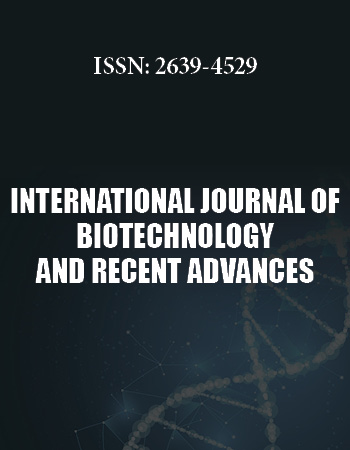European Microbiology Research Conference
December 3-4, 2018 Valencia, Spain
Biodegradation of Crude Oil-Polluted Soils by Bacterial Isolates
Chukwuemeka Odumegwu Ojukwu University, Nigeria
Biodegradation of crude-oil-polluted soil by was carried out to determine the ability of bacteria to utilize and detoxify crude oilpolluted soils. Samples were collected from crude oil-polluted environments of Niger Delta ecological zone. Physico-chemical, microbiological, adaptability tests, biochemical and molecular characterization of the isolates were assayed. Composite samples were collected from a depth of 20cm, soil pH, moisture content, water holding capacity and total organic carbon was carried out. Serial dilution using spread plate method was used to determine the total heterotrophic bacteria and hydrocarbon utilizing bacteria. Residual total petroleum hydrocarbon was analyzed using gas chromatographic flame ionization detector method. Identity of bacterial isolates was confirmed using polymerase chain reaction techniques. Results revealed that pH ranged between 3.65–6.1, total organic carbon content ranged from 3.4–7.1 %, total viable counts ranged from 7.1 x 106–9x1010, the bacterial load was high for all sample. Environmental indigenous bacteria were able to mineralize the crude oil in the soil. Adaptability test revealed values ranging from 0.11–0.54, all the isolates adapted well to crude oil exposure. Biochemical test results revealed Bacillus spp., Pseudomonas spp., Serratia spp., Micrococcus spp., Bacillus spp., Proteus spp., Arthrobacter spp. and Shigella spp. PCR results gave the identity of the organisms as Lysinibacillus spp. M2c, Serratia marcescens Mb4, Bacillus aerius TPM-23, Proteus mirabilis LS-3, a new isolate was encountered. TPH concentrations were in the range of 123.67 mg/l–753.32 mg/l. This study has established the ability of the isolates; Serratia marcescens Mb4 and Lysinibacillus spp. M2c to utilize and detoxify crude oil-contaminated soils.

Biography:
Umeaku Chinyelu has completed her Ph.D at the age of 52 from Federal University of Technology, Owerri, Nigeria. She has a diploma of the National Institute of Science Laboratory Technology. She is a member of the Organization for Women in Science for the Developing World (OWSD), a member of Science Teachersʼ Association of Nigeria (STAN), a member of Nigerian Society for Microbiology (NSM), a member of American Society for Microbiology (ASM). She is an author and has published many journal articles and attended several conferences both locally and internationally.


